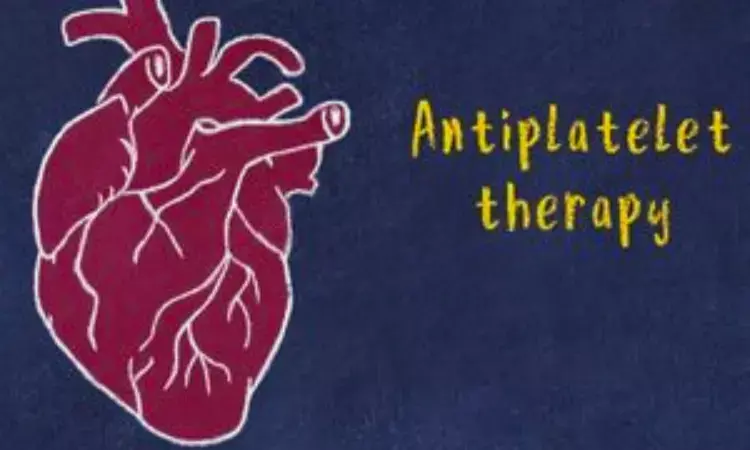- Home
- Medical news & Guidelines
- Anesthesiology
- Cardiology and CTVS
- Critical Care
- Dentistry
- Dermatology
- Diabetes and Endocrinology
- ENT
- Gastroenterology
- Medicine
- Nephrology
- Neurology
- Obstretics-Gynaecology
- Oncology
- Ophthalmology
- Orthopaedics
- Pediatrics-Neonatology
- Psychiatry
- Pulmonology
- Radiology
- Surgery
- Urology
- Laboratory Medicine
- Diet
- Nursing
- Paramedical
- Physiotherapy
- Health news
- Fact Check
- Bone Health Fact Check
- Brain Health Fact Check
- Cancer Related Fact Check
- Child Care Fact Check
- Dental and oral health fact check
- Diabetes and metabolic health fact check
- Diet and Nutrition Fact Check
- Eye and ENT Care Fact Check
- Fitness fact check
- Gut health fact check
- Heart health fact check
- Kidney health fact check
- Medical education fact check
- Men's health fact check
- Respiratory fact check
- Skin and hair care fact check
- Vaccine and Immunization fact check
- Women's health fact check
- AYUSH
- State News
- Andaman and Nicobar Islands
- Andhra Pradesh
- Arunachal Pradesh
- Assam
- Bihar
- Chandigarh
- Chattisgarh
- Dadra and Nagar Haveli
- Daman and Diu
- Delhi
- Goa
- Gujarat
- Haryana
- Himachal Pradesh
- Jammu & Kashmir
- Jharkhand
- Karnataka
- Kerala
- Ladakh
- Lakshadweep
- Madhya Pradesh
- Maharashtra
- Manipur
- Meghalaya
- Mizoram
- Nagaland
- Odisha
- Puducherry
- Punjab
- Rajasthan
- Sikkim
- Tamil Nadu
- Telangana
- Tripura
- Uttar Pradesh
- Uttrakhand
- West Bengal
- Medical Education
- Industry
Antiplatelet Therapy may Reduce COVID-19 Severity and Complications: Study

A recent study published in the Nature Scientific Reports uncovered the role of antiplatelet therapy (AP) in reducing the severity of the COVID-19 and improving patient outcomes.
The study involved a total of 2170 hospitalized COVID-19 patients with a mean age of 60 years and delved into the interplay between hyperinflammation, disruptions in coagulation processes and the use of AP. Of all the patients in the study, 274 had received AP prior to COVID-19 infection, while another 274 were propensity score-matched controls without previous AP usage.
The results revealed that patients in the AP group experienced fewer instances of critical illness with reduced rates of ICU admissions (9% vs. 15%) and shock development (9% vs. 15%) when compared to the non-AP group. Also, the AP group expressed higher rates of coronary revascularizations (5% vs. 1%) and strokes/transient ischemic attacks (5% vs. 1%), though bleeding rates were comparable between the groups.
The patients in the AP group demonstrated lower mortality rates at both the 3-month (31% vs. 39%) and 6-month (34% vs. 41%) marks when compared to their counterparts. This effect was even more pronounced in a subgroup with a history of cardiovascular events, where AP reduced both 3-month (37% vs. 56%) and 6-month (42% vs. 57%) mortality. Further analysis revealed that continuing acetylsalicylic acid (aspirin) during hospitalization came with additional benefits by significantly reducing mortality rates when compared to patients whose aspirin therapy was suspended.
These findings underline the potential of AP in improving the hospital course and medium-term outcomes of COVID-19 patients who are at high risk of cardiovascular complications. The outcomes of this study suggest that AP should not be discontinued in such cases that highlight a promising option for the future treatment strategies.
Source:
Sokolski, M., Reszka, K., Adamik, B., Kilis-Pstrusinska, K., Lis, W., Pomorski, M., Sokolowski, J., Doroszko, A., Madziarska, K., Jankowska, E. A., & Protasiewicz, M. (2024). Antiplatelet therapy prior to COVID-19 infection impacts on patients mortality: a propensity score-matched cohort study. In Scientific Reports (Vol. 14, Issue 1). Springer Science and Business Media LLC. https://doi.org/10.1038/s41598-024-55407-9
Neuroscience Masters graduate
Jacinthlyn Sylvia, a Neuroscience Master's graduate from Chennai has worked extensively in deciphering the neurobiology of cognition and motor control in aging. She also has spread-out exposure to Neurosurgery from her Bachelor’s. She is currently involved in active Neuro-Oncology research. She is an upcoming neuroscientist with a fiery passion for writing. Her news cover at Medical Dialogues feature recent discoveries and updates from the healthcare and biomedical research fields. She can be reached at editorial@medicaldialogues.in
Dr Kamal Kant Kohli-MBBS, DTCD- a chest specialist with more than 30 years of practice and a flair for writing clinical articles, Dr Kamal Kant Kohli joined Medical Dialogues as a Chief Editor of Medical News. Besides writing articles, as an editor, he proofreads and verifies all the medical content published on Medical Dialogues including those coming from journals, studies,medical conferences,guidelines etc. Email: drkohli@medicaldialogues.in. Contact no. 011-43720751


